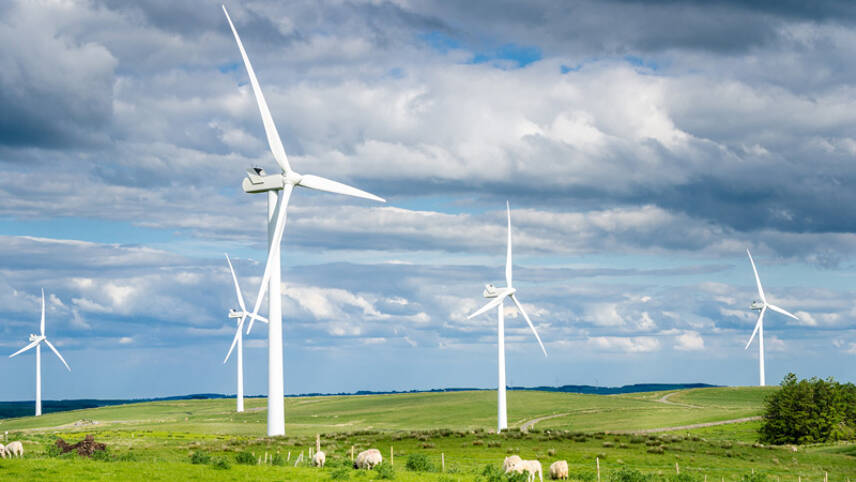Register for free and continue reading
Join our growing army of changemakers and get unlimited access to our premium content

Identified land could produce 2.5 times the electricity needed to power all households in England.
This according to a study by Exeter University’s Environmental Intelligence Centre and Friends of the Earth, unveiling the untapped potential for renewable energy production in England.
The analysis assessed land across England, identifying approximately 374,900 hectares – equivalent to 2.9% of the country’s total land area – deemed highly suitable for new onshore wind and solar farms.
North Yorkshire, Lincolnshire and East Riding of Yorkshire emerged as the top areas with the highest potential, as per the study.
The study excluded national parks, areas of natural beauty, higher-grade agricultural land and heritage sites for a conservative approach in its calculations, prioritising environmental preservation.
Even with these considerations, researchers identified sufficient viable land to generate an estimated 130,421 gigawatt-hours (GWh) of solar power and 95,542 GWh of onshore wind energy, far surpassing the current combined output of 17,063 GWh.
The analysis indicates that the identified land could produce 2.5 times the electricity needed to power all households in England, positioning the UK as a potential green energy superpower capable of exporting clean electricity globally.
Research suggests that the UK needs to increase its renewable electricity production twofold within the next six years to maintain energy security while decarbonising the energy system in line with climate targets.
This increase is crucial for meeting targets concerning electrification of transport, transitioning to clean heating, achieving national climate goals and fulfilling international commitments to reduce carbon emissions by 68% by 2030.
Demand for policy support
In response to the analysis findings, Friends of the Earth is advocating for comprehensive policy measures, including lifting restrictions on onshore wind farms, local authorities’ identification of suitable areas for renewables, and substantial investment in modernising the electricity grid.
Friends of the Earth’s climate campaigner Tony Bosworth said: “The current Government’s track record on boosting our energy security through renewables is woefully inadequate and has left the UK lagging far behind in the global race to a zero-carbon economy.
“We urgently need our political leaders to pull their heads out of the sand and produce a strong, ambitious and fair new climate plan that lifts the barriers to onshore wind and solar power and secures investment in the infrastructure needed to support the switch to renewables.”
The green group also emphasises the importance of ensuring biodiversity benefits and community engagement in renewable energy projects.
This comes as the Department for Energy Security and Net Zero (DESNZ) has quietly launched a call for evidence on the barriers to community energy projects in England.


Solar should go on roofs and areas such as car parks. Any land use is only justified if such uses are inadequate – which they will not be. There isa lot of land that has potential for health and wellbeing use that should exclude simple power generation. The value to society of these assets should be factored into tidal generation viability assessment and value.
I agree with Mike Mann’s comment about the need to include tidal energy generation which has a huge potential around the UK, probably enough to power all the homes in the UK alone. Considering that present UK electricity production from all sources is only around 20% of the UK primary energy demand, and by 2050 at least 80% of our primary energy demand will be delivered as electricity, a huge increase in electricity generation is essential; this is only likely to be achieved with a huge increase in NEW nuclear power, as most of our existing nuclear power stations that presently generate nearly half our electricity will have closed by 2030; with the grid struggling to deliver electricity, we need a massive roll out of small modular reactors installed to power local power stations close to where the electricity is used.
Agreed that new nuclear power is needed to meet future demand, as Small Nuclear Reactors.
Proximity to points of demand could reduce the size of the open pylon network, but that would be a nice spin-off. The integrity of the system would have, of course, to be maintained.
But speaking from outside an Industry is always chancing ones arm!
I should have added that a forest of these turbines in our green and pleasant land will hardly serve to enhance the landscape.
But I don’t suppose that the owners, in the Canaries or the Bahamas, will worry about that!